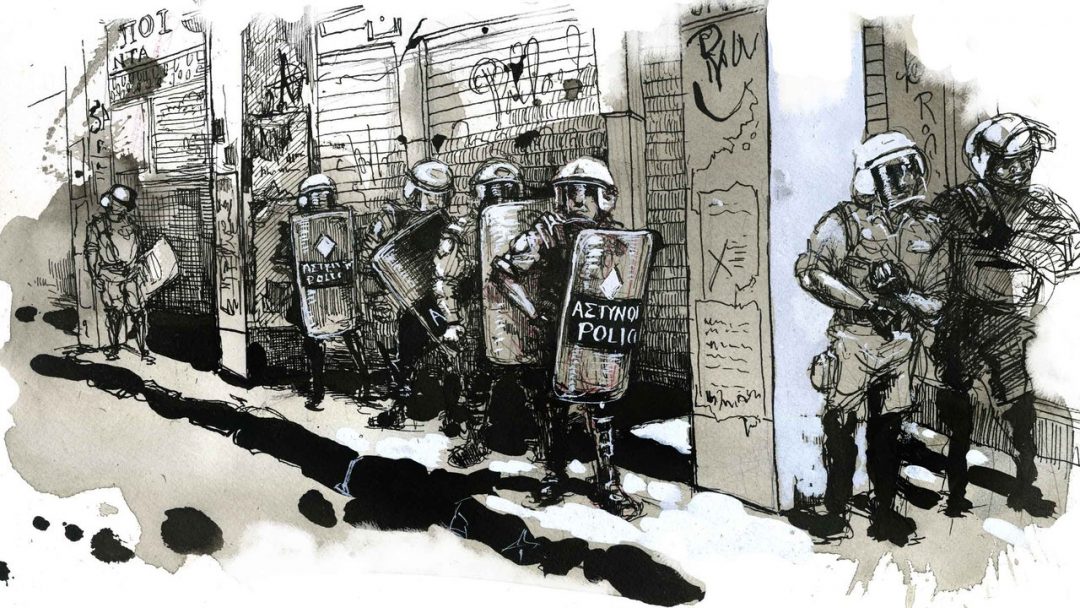

Gradually order was about to return after many days of persisting demonstrations and riots. Until the 13th of December (one week after the murder) 258 people were brought into the police departments, 176 were arrested (100 of them were immigrants), 24 were put in prison and 32 had been convicted. From Tuesday, the police started reacting more violently against the protesters.
Alexandros grigoropoulos free#
Only after Monday’s afternoon aggressive riots, massive damages and cops’ injuries, the media felt free to initiate their traditional role making pleas to the state to intervene and stop the demonstrations. After the start of the riots, Prokopis Pavlopoulos, the Minister of the Interior, could find nothing better to say than that he was sorry for the “unfortunate event.” The politicians kept a low-profile because the anger was also directed against them. The mainstream media were unable to start their usual condemnation of the demonstrations, because they could not oppose public opinion. The massive outburst of sudden anger expressed what the vast majority of the population was feeling. It is a strong impression of many Greeks that, until Tuesday, there was no actual government in the country. These huge conflicts and protests all over Greece culminated in Monday’s afternoon riots in all major cities, and especially in Athens and Thessaloniki. One even bigger demonstration took place in the afternoon, followed by serious riots. The very next morning, thousands of young people were demonstrating all over Greece, some were attacking police stations.

For these hypocrites, it seems that society is incapable to react on its own, unless guided by a conspiracy or, preferably, when it supports their ideas. After the events reactionaries of various kinds, from extreme-right racists to the Stalinist Communist party (KKE), were to maintain that foreign and Greek secret services had organized the riots. In all major Greek cities the events were developing in a surprising similar way. The protests were rapidly transforming into violent conflicts with the police and fire attacks against banks, luxurious shops and fancy cars. It was hard to move around because the police and tear gas were already covering the centre of the city. People were informed about what happened mainly by Athens Indymedia, and gradually from mainstream media, and were spreading the news in a delirious speed.Īt 11 o’clock we left the tavern.

The murder took place in Athens around 9pm while I was in a tavern in Thessaloniki with some friends, 700km away. In all major cities, and also smaller ones, people started immediately gathering in the streets to protest against the murder and police brutality. Remarkably, just a couple of hours later, the news had traveled all over Greece. December 6th, 2008, 15-year-old Alexandros Grigoropoulos was fatally shot by the police officer Epaminondas Korkoneas.


 0 kommentar(er)
0 kommentar(er)
